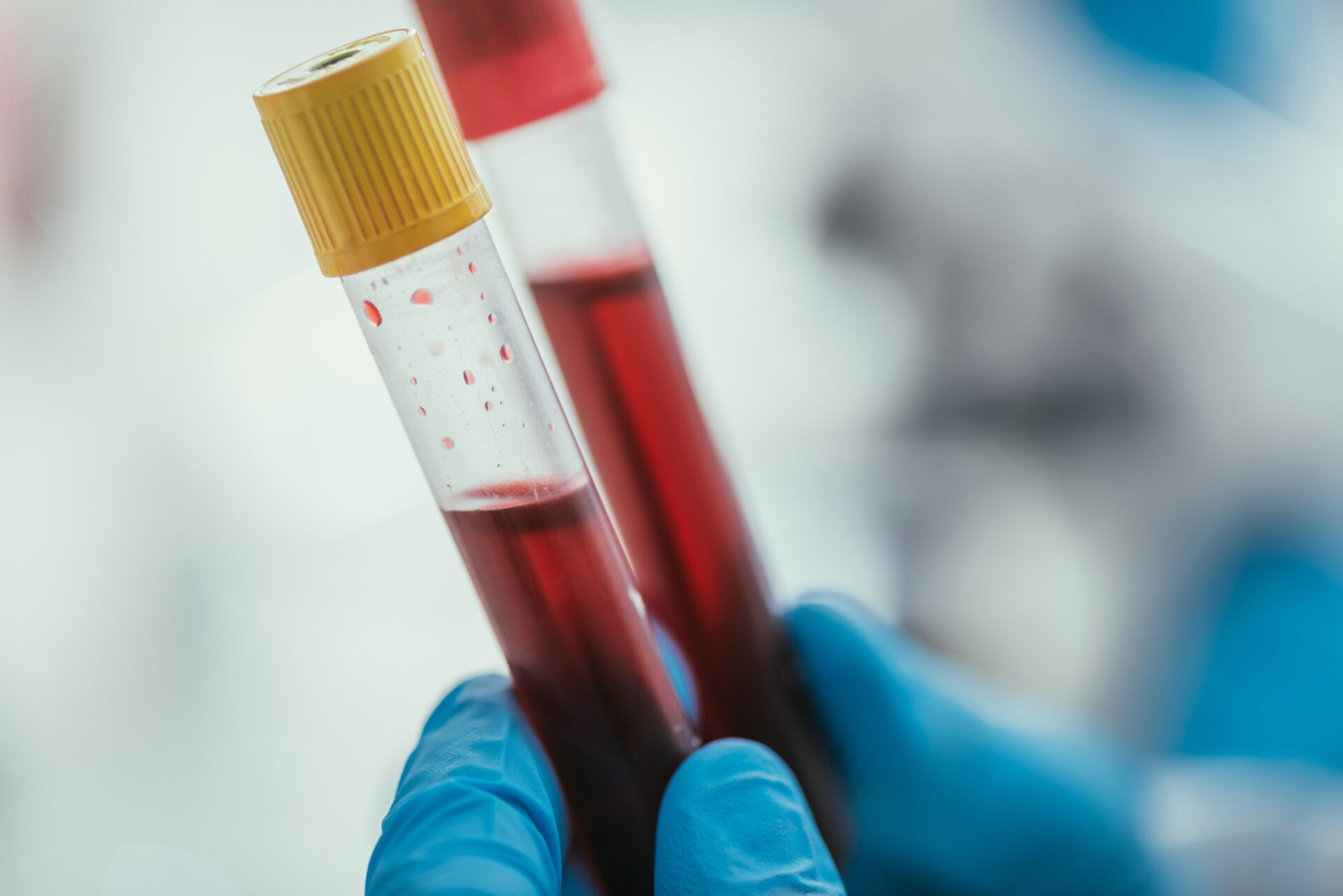294/1 Asia Building (11th Floor), Phyathai, Bangkok
UREAPLASMA/MYCOPLASMA
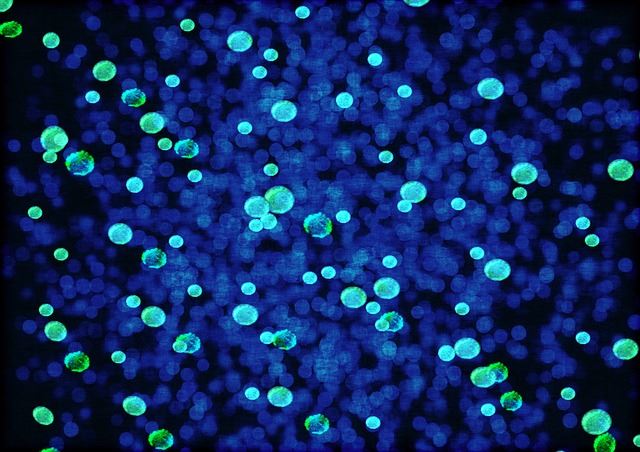
How do patients contract this infection, and how do I prevent spread to other patients?
Epidemiology:
In adults, colonization with M. hominis, M. genitalium and U. urealyticum is associated with sexual activity.
In studies of STD clinic populations, these organisms were more commonly found in patients younger than 50, women and African Americans.
In the United States, some studies have also found an association between colonization and lower socioeconomic status.
Infection control issues:
There is no vaccine available.
Post-exposure prophylaxis is not recommended.
What host factors protect against these infections?
There is likely importance to both the cellular and humoral immune system responses in controlling genital Mycoplasma and Ureaplasma infections, but the exact mechanisms are not well understood.
The organisms cause disease as extracellular parasites attaching to both ciliated and non-ciliated epithelial cells of the genitourinary (GU) tract. Once attached, they may either cause direct destruction or trigger immune mediated damage to the GU tract.
What are the clinical manifestations of infection with these organisms?
Associated clinical diseases include pelvic inflammatory disease, cervicitis, urethritis, epididymitis, pyelonephritis, chorioamnionitis, post-partum fever, still birth, and rarely meningitis, brain abscess, endocarditis, wound infections, and bacteremia. Ureaplasma and M. hominis have been associated with bacteremia, pneumonia and meningoencephalitis in neonates.
Genital mycoplasma or ureaplasma infection may be asymptomatic in many cases.
Urethritis may present with urethral discharge in men, vaginal discharge in women or urethral irritation or dysuria in either men or women.
Epididymitis most often presents as unilateral warmth, tenderness and swelling of the epididymis overlying the testis within the scrotum. Patients may describe discomfort with ejaculation.
Cervicitis may result in vaginal discharge, pelvic pain or dyspareunia. On pelvic examination, a swab placed into the cervical os will reveal discharge, and wet mount will have copious white blood cells.
Pelvic inflammatory disease is a clinical diagnosis. Many cases may be asymptomatic or have only minimal symptoms. Classic findings include fever, pelvic or low abdominal pain and one or more of the following on pelvic exam: uterine, cervical or adnexal tenderness.
The clinical manifestations of pyelonephritis include fever, dysuria, abdominal and/or back pain, and tenderness to percussion of the costovertebral angle on the affected side. Hematuria may be present.
Pregnant women with chorioamnionitis present with fever and abdominal or pelvic pain. Uterine tenderness is present on examination.
What common complications are associated with infection with this pathogen?
Complications include pyelonephritis, pelvic inflammatory disease, postpartum fever, and still birth. More rare complications include meningitis, brain abscess, endocarditis, wound infections, and bacteremia. Ureaplasma and M. hominis have been associated with bacteremia, pneumonia and meningoencephalitis in neonates.
How should I identify these organisms?
Sampling from the affected organ system for specialized culture would yield the best results. However, culture is not widely available.
These organisms do not have cell walls, and therefore it is not possible to perform gram staining on them.
Culture is highly specialized, and available in limited laboratories. Samples must be immediately placed into broth before they dry out. Initial pH distinguishing plates, which help differentiate these organisms from M. pneumoniae, are followed by blood agar plates which are kept in a 95% nitrogen and 5% CO2 environment. The M. hominis colonies have a characteristic “fried egg” appearance.
PCR assays for genital Mycoplasma and Ureaplasmaare not commercially available. One study showed that sensitivity using vaginal swabs was 86%.
How do these organisms cause disease?
Mycoplasmas attach to the exterior of both ciliated and non-ciliated epithelial cells. Cell damage may be mediated either through direct effects (hydrogen peroxide for instance) or may be immune mediated, but the exact contribution of each is not well known.
What is the best treatment?
Doxycycline is the treatment of choice for M. hominis and U. urealyticum.Duration and dose vary by site of infection, and are usually incombination with other antibiotics. Examples include doxycycline 100mgorally twice daily for 14 days (as part of a combination regimen forpelvic inflammatory disease), and doxycycline 100mg orally twice dailyfor 7 days for uncomplicated nongonococcal urethritis in men.
Azithromycin is the preferred treatment for M. genitalium.Duration and dose vary by site of infection, and are usually incombination with other antibiotics. An example is azithromycin 1g orallyonce for uncomplicated nongonococcal urethritis in men, or forcervicitis in women.
Make Appointment





Relate content :

Your Guide to Sexual Health Clinics: Everything You Need to Know
Are you seeking information about sexual health clinics? Whether you're looking for routine check-ups, specific treatments, or simply want to learn more about your sexual health, this blog post is here to guide you. We'll discuss what sexual health clinics are, how to choose the right one, and provide a spotlight on sexual health clinics…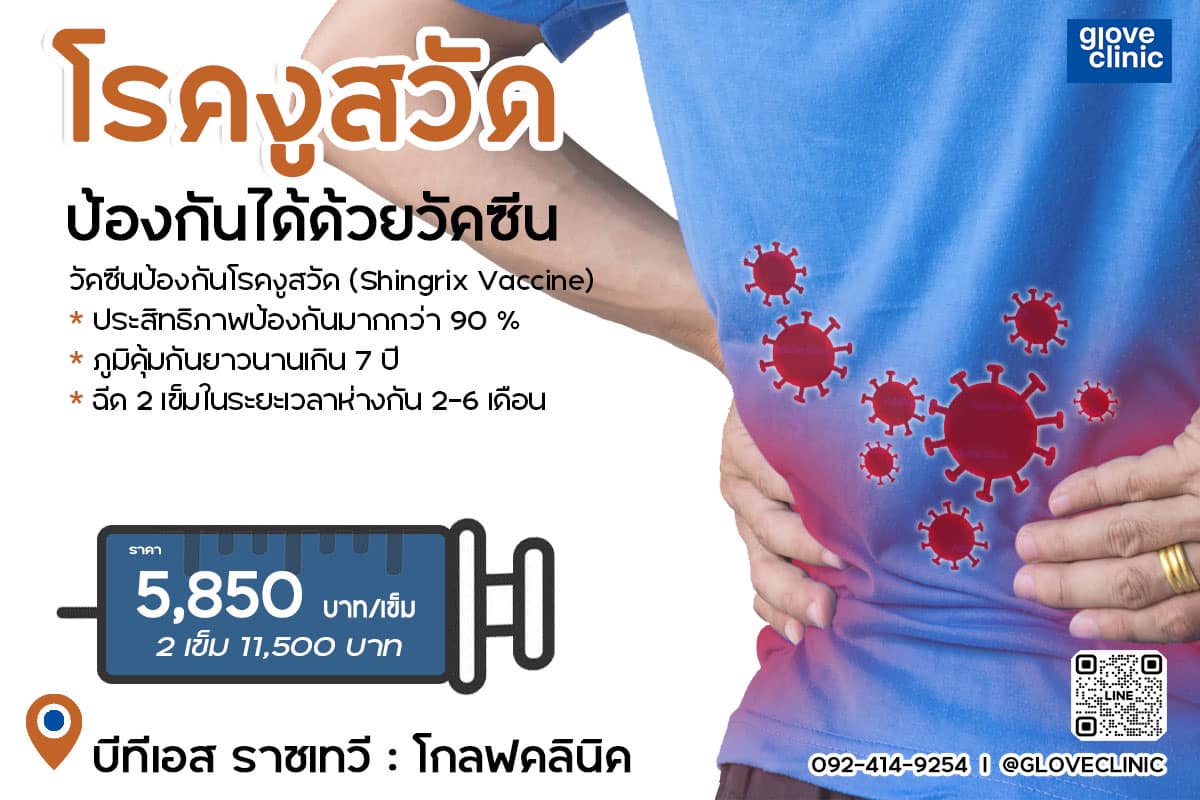
ฉีดวัคซีนงูสวัดที่ glove clinic
งูสวัดคือไวรัสชนิดหนึ่ง (Herpes zoster) ซึ่งเป็นเชื้อไวรัสตัวเดียวกันกับอีสุกอีใส (Varicella zoster) เมื่อเราติดเชื้อไวรัสอีสุกใสในวัยเด็กแล้ว ไวรัสสามารถที่จะหลบซ่อนได้ในร่างกายเป็นเวลานานหลายปี จนกระทั่งเมื่อร่างกายอ่อนแอ ไวรัสนั้นจึงออกมาทำให้เกิดอาการตุ่มน้ำใส ปวดแสบร้อนตามบริเวณที่เส้นประสาทต่าง ๆ ของร่างกายซึ่งเรียกกันว่างูสวัด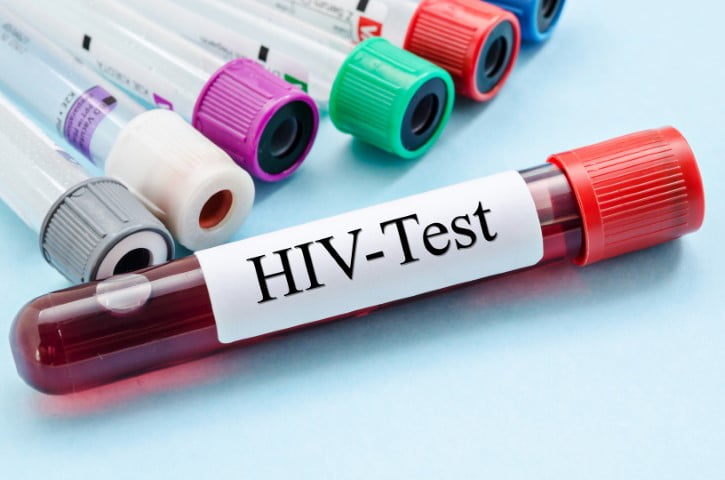
ตรวจ HIV รีวิวความรู้สำหรับการตรวจเอชไอวี (HIV test)
เอชไอวีคือไวรัสที่สามารถติดต่อได้จากการมีเพศสัมพันธ์, การใช้เข็มฉีดยาร่วมกัน, และการติดจากแม่สู่ลูก เมื่อติดเชื้อไวรัส HIV ไวรัสจะทำให้ภูมิคุ้มกันของร่างกายอ่อนแอลง และติดเชื้อโรคอื่น ๆ ได้ง่าย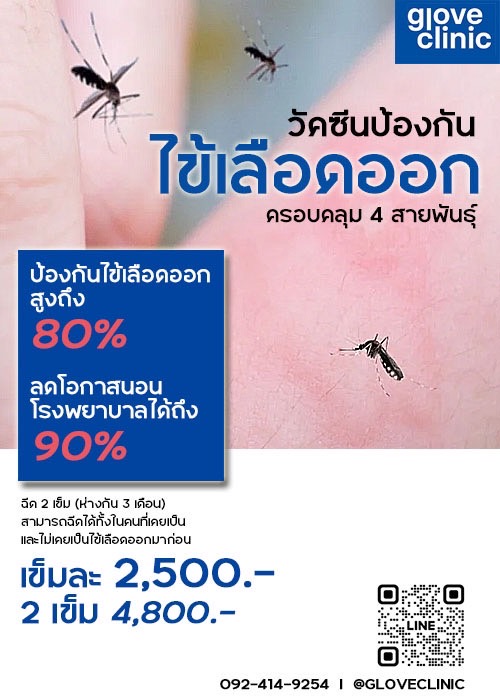
ปีนี้มีคนไข้ป่วยด้วยไข้เลือดออกมากกว่า 2-3 ปีที่ผ่านมา
เนื่องจากว่าผู้คนกลับมาใช้ชีวิตปกติ มีการเดินทาง จึงพบการระบาดมากขึ้น โดยจากสถิติของกรมควบคุมโรคพบว่ามีผู้ป่วยด้วยไข้เลือดออกในประเทศไทยเกินกว่า 60,000 รายไปแล้วทั้งปี 2566 ไข้เลือดออกเป็นโรคที่ก่อให้เกิดความรุนแรงได้ทั้งในเด็กและผู้ใหญ่ โดยเฉพาะอย่างยิ่งในคนที่เป็นซ้ำครั้งที่ 2 จะมีโอกาสเกิดภาวะช๊อคและเสียชีวิตได้มากขึ้น (โอกาสเสียชีวิตอยู่ราว ๆ 1:1,000) วัคซีนไข้เลือดออกรุ่นใหม่สามารถครอบคลุมได้ทั้ง 4 สายพันธุ์และทั้งนี้ผลการศึกษาพบว่าช่วยป้องกันการติดเชื้อได้ถึง 80% และลดโอกาสการนอนโรงพยาบาลได้ถึง 90% นอกจากนี้ยังสามารถฉีดได้ทั้งในคนที่เคยและไม่เคยเป็นไข้เลือดออกมาก่อน (วัคซีนไข้เลือดออกรุ่นเก่าไม่ควรฉีดในคนที่ยังไม่เคยเป็นไข้เลือดออก) สอบถามข้อมูลเพิ่มเติมเรื่องวัคซีนไข้เลือดออกได้ที่ 092-414-9254, Line Official @gloveclinic (มีแอดข้างหน้า)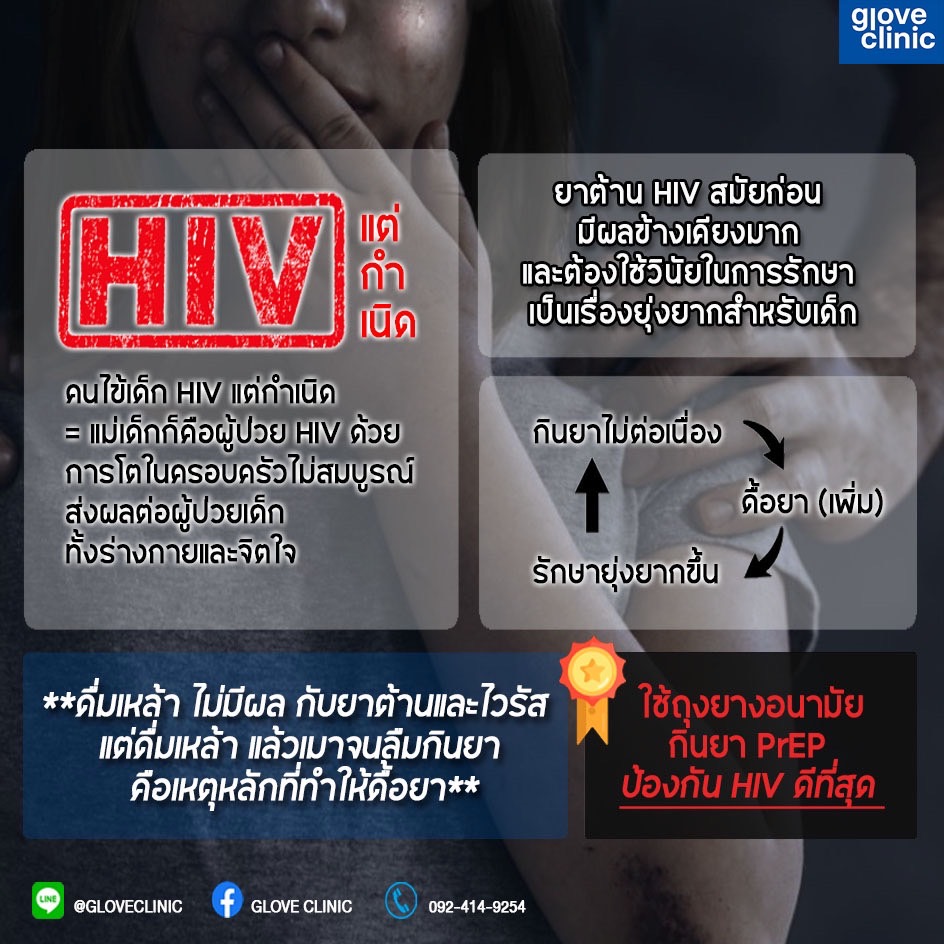
HIV แต่กำเนิด
ประเด็นร้อนที่ได้รับการพูดถึงอย่างมากในโลกออนไลน์ที่มีข้อความของนักศึกษาหญิงเปิดเผยว่าตัวเธอเองได้มีเพศสัมพันธ์แบบ one night stand เวลาไปเที่ยวกลางคืนบ่อยครั้ง และได้บอกความจริงว่าเธอเองมีเชื้อ HIV